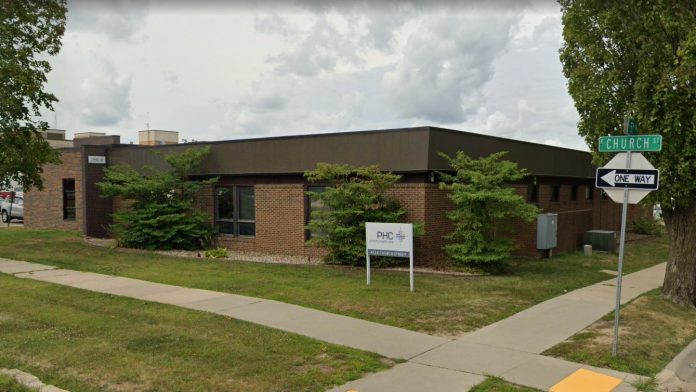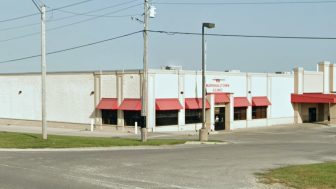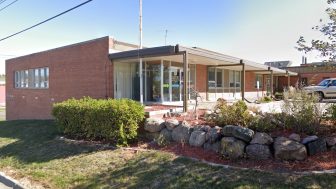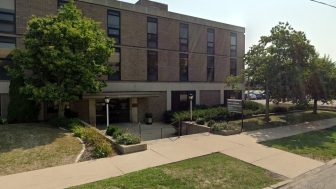Primary Health Care – Respiratory
Closed: Please See Nearby Facilities
Marshalltown, Iowa

About Primary Health Care – Respiratory
In Marshalltown, Iowa, you'll find PHC Primary Health Care Medical Clinic Marshalltown. Their integrated mental health and substance use disorder treatment programs are available to people of all ages. This is an outpatient clinic.
The Marshalltown clinic employs medical professionals across several fields to bring a diverse range of healthcare and support services to the community, including medication assisted treatment (MAT). You should know that they treat people of all backgrounds regardless of citizenship status.
The Marshalltown clinic accepts Medicare, Medicaid, and private insurance. If you're uninsured or worried you might not be able to afford care, they'll adjust the costs with a sliding fee scale.
Combining Your Physical and Mental Health
I like that this clinic considers both your physical and mental health as part of treatment. Not only can addiction impact both, but recovery becomes more effective when both sides are considered.
Programs at PHC include family medicine and wellness, dentistry and chronic illness management. The clinic is ready to help with a lot of physical health issues. However, should there be a problem they aren't equipped for, you can expect a referral to someone who can assist you.
Get Your Medication On Site
Something else I like about the clinic is that it has a pharmacy on site. It may seem like a small thing, but when you don't have to travel to get your prescriptions, the time saved can add up. Plus being onsite ensures that your pharmacist can easily contact your care team if there are any questions about your medications.
Support That Evolves With You
Recovery is an ongoing process that simply doesn't end once you exit treatment. Ideally, the skills you learn in counseling will help you maintain sobriety as you resume independent living. But you aren't alone in this. PHC staff will stay in touch with you after treatment ends. They'll ask you about your recovery and any challenges you're facing. They'll also work with you to adapt your care plan to the changes in your life.
It's nice that you aren't totally left to your own devices once you leave. Though the goal is to have you reach a point of independence, your care team will still be there to lend a hand as needed.
Amenities
Private drug rehab provides a comfortable, secure environment that allows you to focus on doing the work to get your life back on track. Benefits include a higher staff-to-client ratio, increased one-on-one time with therapists and healthcare providers, private rooms for clients, and customized forms of therapy.
Residential drug rehab provides the comforts of home with the therapeutic support needed to successfully recover. Benefits of an inpatient program include increased safety, a higher success rate, and the time and distance given to focus on recovery. Residential drug rehabs are often the preferred method of treatment, as they can be tailored to meet specific needs, offer focused therapeutic care, and provide the necessary tools to sustain recovery.
Addiction Treatment Programs
Treatment at an adult program in Iowa is targeted for men and women over the age of 18. These recovery services focus on establishing healthy coping skills that allow individuals to stop abusing substances.
The journey through alcohol rehab in Iowa typically involves four key phases. Treatment initiation is followed by early abstinence. Participants then learn how to maintain abstinence, and finally enter advanced recovery. These steps teach individuals how to develop and maintain a healthy, sober lifestyle.
Men’s rehab in Iowa offers multiple levels of care. Treatment programs designed for men include inpatient, outpatient, partial hospitalization programs (PHP), intensive outpatient programs (IOP), detox, and sober living.
Veteran’s rehab in Iowa offers evidence-based treatment that addresses the full needs of Veterans who are facing addiction. Treatment may include family therapy, group therapy, individual therapy, life skills training, wellness programs, and relapse prevention.
Opioid rehab in Iowa is more comprehensive than many people imagine. This treatment addresses physical, mental, emotional, and relational issues that contribute to opioid abuse. Most successful programs offer comprehensive care that includes detox, behavioral therapy, medication assisted treatment, and aftercare support.
Women and men react differently biologically, emotionally, and socially to substance abuse and addiction. That’s why women’s rehab in Iowa provides treatment targeted to meet women’s needs.
A young adult program in Iowa specializes in addiction treatment for young people from their teen years through their late 20s. Some include adults up through age 32. Treatment focuses on recovery challenges that are specific to this stage of life.
Levels of Care
Outpatient rehab in Iowa is tailored to fit each person’s needs. It may last a few weeks or more than a year. During that time, you will attend regular therapy sessions and receive support from a group such as AA or NA. This treatment will help you put strategies in place to prevent relapse and promote recovery.
Also known as residential treatment, inpatient rehab in Iowa typically involves group and individual therapy, family therapy, medication management, and other therapy methods. Participants receive these treatments while living at the facility under 24/7 care.
During detox in Iowa, your body is slowly and safely cleansed of all addictive substances. This is typically the first step of drug rehab in Iowa. It involves 24/7 professional supervision and may include medication to treat withdrawal.
Accreditations
Find Rehab Centers Near Marshalltown

22 North Center Street
Marshalltown, IA 50158

201 East Merle Hibbs Boulevard
Marshalltown, IA 50158

1123 1st Avenue East
Suite 200
Newton, IA 50208

9 North 4th Avenue
P.O. Box 1453
Marshalltown, IA 50158